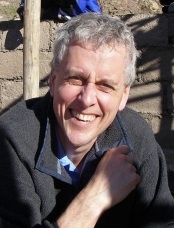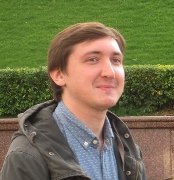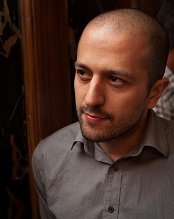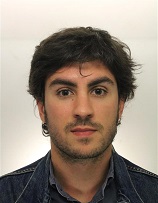| |
Bill Adams is Moran Professor of Conservation and Development in the Department of Geography at the University of Cambridge. He is currently working on a new edition his book on sustainable development (Green Development, Routledge 2003), and a new project on Future Natures, focusing on ideas of naturalness, authenticity and artificiality in nature conservation. In particular, he is interested in the implications of novel technologies in conservation theory and practice, and the importance of ideas of place in conservation territorialization |
January to April |
| |
Giacomo Bonan (1987) has just discussed his PhD thesis in history at the University of Bologna. His interests concern the management of environmental resources in the Italian Alps during the nineteenth century and, in particular, the conflicts between state authorities and local communities over the use of woods. Thanks to a "C.M. Lerici" scholarship, he is now working at the Environmental Humanities Laboratory (KTH) Stockholm |
August to December |
| |
Vasiliy Borovoy, PhD from Saint-Petersburg: Currently I am in my second year of a PhD program at Department of History at Higher School of Economics in Saint-Petersburg. I study the history of the Soviet coal mining on Spitsbergen in the 20th century through the lens of technological history, the Soviet studies approaches and constructivist framework. In 2011 I received a specialist degree in history (five years of studies) from the Northern Arctic Federal University (Arkhangelsk, Russia). In 2015 I graduated from master program in Russian history at the European University at Saint-Petersburg. I also take part in a collective research project “New governance for sustainable development in the European Arctic” (2014-2017) funded by MISTRA, Working package 1. “The making of the European Arctic – northern resource governance in comparative contexts”, Section 1.2. “Extractive industries (mining)”. My goal is to figure out if Russian and the Soviet policy towards Spitsbergen in the 20th century was motivated not only by its strategic position but also by economic value of Arctic mineral resources, namely coal. My aim in a collective research project «Natural Resources in Russian History: economic institutions, expert communities and infrastructures” (2016-2018) funded by the Russian Science Foundation is more narrow. I try to examine how, by whom and for what purposes Spitsbergen coal was constructed as a resource for the Soviet planned economy. |
February to December |
| |
Baki Cakici is a postdoctoral researcher at the Department of Sociology at Goldsmiths, University of London. He is currently part of the European Research Council funded research project "Peopling Europe: How data make a people" (ARITHMUS). He holds a PhD in Computer and Systems Sciences from Stockholm University. His research interests include surveillance, classification, and the politics of computation. He is specifically interested in the role of algorithms and big data analytics in knowledge production. In his research, he draws on theories from science and technology studies, and surveillance studies. |
February to July |
| |
Ole Kallelid, the University of Stavanger, Norway. Ole is a doctoral candidate in history, spending much of his time in the Stockholm archives to work on Swedish and Norwegian politics in the 1960s and 1970s in a comparative perspective. |
June |
| |
Stefano Morosini, has worked on the history of mountain climbing in the Alps and he would like to do some comparative work during his staying here. Thanks to a "C.M. Lerici" scholarship, he is now working at the Environmental Humanities Laboratory (KTH) Stockholm. |
September-December |
| |
Sergio Ruiz, Master's student at the Environmental Humanities Laboratory and research assistant at the Stories and Seeds project, about environmental literacy for technical students. |
January-April 2018 |




